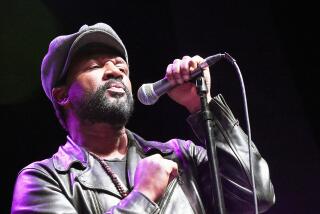The Fingerprint Samba
Dale Hersh, an American Airlines pilot, held up a naughty digit to protest being photographed for admission into Brazil at a Sao Paulo airport. His photo shows no anger on his face, just a flicker in his eyes as if he were having, well, fun. But this prank last week cost his airline $12,700. The incident -- in which he was charged with “disrespect for authority,” a crime that could have jailed him for six months -- has blown up into a hemispheric imbroglio of knuckle-headed proportion between Brazil and the U.S.
It centers on the southerners’ startling inability to recall that a terrorist attack in the United States’ largest city destroyed two skyscrapers, killed about 3,000 innocent people and led to two huge U.S. incursions overseas. Terrorism has so traumatized the U.S. that, among other things, it has tightened its borders, asking, and reasonably so, that foreign visitors submit to the minor inconvenience of being fingerprinted and photographed on entry to major airports.
Alas, in Rio, this practice has become a national insult, even though the U.S. applies it to citizens of 150 countries. In response to the U.S. security move, a Brazilian judge ordered Rio airport authorities to photograph and fingerprint all arriving U.S. citizens. The judge, as he hyperventilated, justified the retaliation by comparing the new U.S. moves to “Nazi horrors.”
Tourism authorities in Rio appealed his decision in a higher court and got it suspended. But the Brazilian government declines to recognize this and has told federal police to keep targeting Americans -- and only Americans -- for long, tedious waits for fingerprinting and photographing.
Elevating this tempest, President Luiz Inacio Lula da Silva, who has usually used his rarefied time at international meetings as a powerful voice for the poor, spent precious political capital at a trade summit in Monterrey, Mexico, lobbying President Bush last week to exempt Brazilians from the U.S. security steps.
The U.S. should politely decline Lula’s request. The U.S. does exempt 27 nations from the entry rules -- for good reasons, including that their passports contain technology that can be scanned by computers as a further safeguard against fraudulent use. Unlike Brazil, these nations have sterling records of their citizens holding the proper papers to enter the U.S. In fact, Lula and the other would-be jingoists ignore this reality: The number of Brazilians refused entry into the U.S. for carrying false documents is one of the highest.
As giants in the hemisphere, Brazil and the U.S. have critical issues to consider between them, like trade, economics, the environment, social justice and, yes, global security. Pettiness by pilots, magistrates and even presidents isn’t an acceptable part of these vital conversations.
More to Read
Sign up for Essential California
The most important California stories and recommendations in your inbox every morning.
You may occasionally receive promotional content from the Los Angeles Times.









